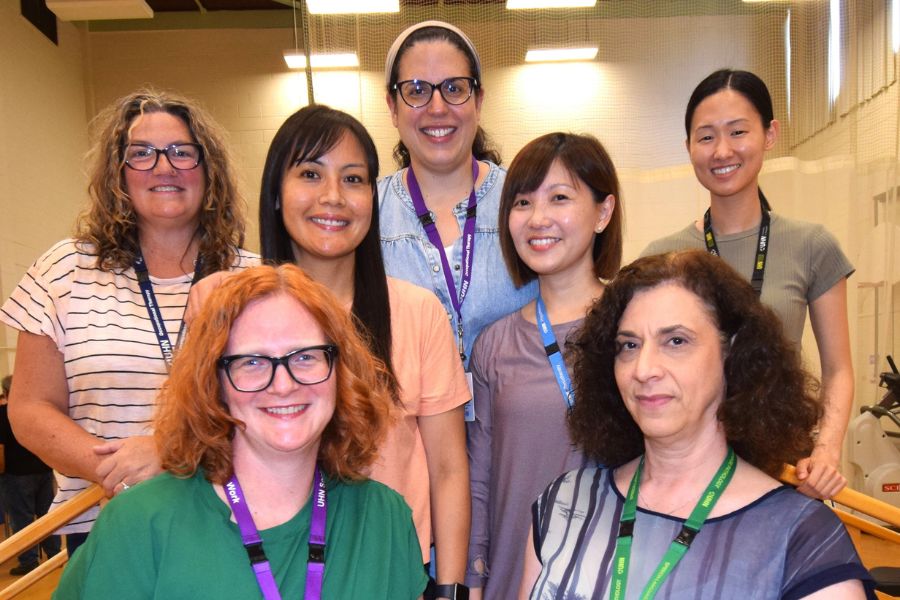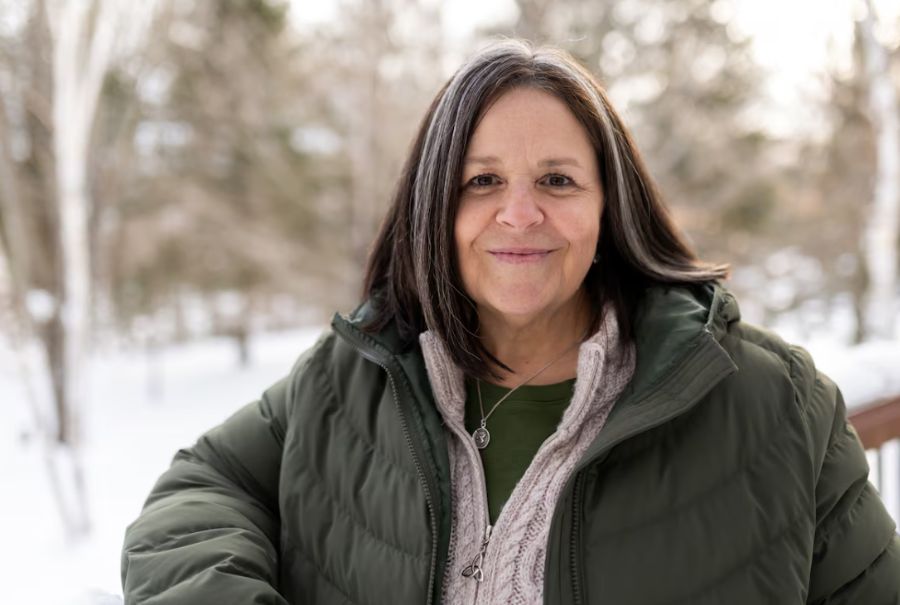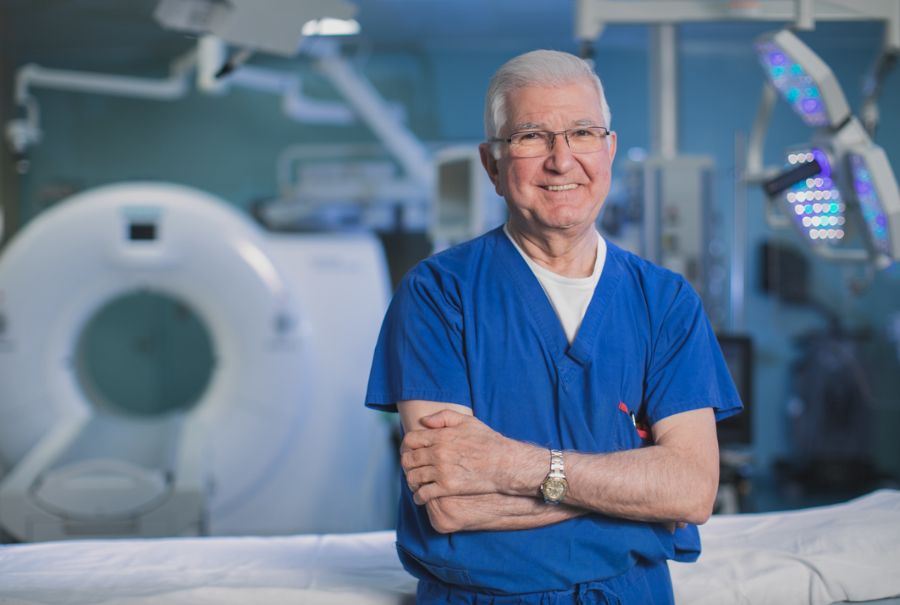(L to R) Drs. Nordia Clare-Pascoe and Kurlene Cenac, graduates of UHN’s Electrophysiology Fellowship Program and cardiac electrophysiologists practicing in Jamaica and Saint Lucia, respectively; Dr. Kumaraswamy Nanthakumar, Senior Scientist at the Toronto General Hospital Research Institute and Director of Heart Rhythm Disorders at UHN’s Peter Munk Cardiac Centre. (Photos: UHN StRIDe Team)
Researchers at the Toronto General Hospital Research Institute (TGHRI) have quantified the positive impact of a UHN cardiology fellowship program established to build electrophysiology capacity in the Caribbean.
Since 2003, the University of Toronto (U of T) and the University of the West Indies (UWI) have collaborated to develop cardiology expertise in the Caribbean. Through this partnership, UHN has trained nearly 20 cardiologists from UWI, most of whom now practice in academic and community settings in their home countries.
U of T’s Caribbean Cardiology Program offers four cardiology fellowships at Toronto General Hospital (TGH) for internal medicine graduates from UWI. In the last few years, UHN has expanded the program to offer specialized cardiology training, such as training in electrophysiology, with a focus on promoting equity, diversity and inclusion (EDI).
Electrophysiology is a demanding subspecialty of cardiovascular medicine, and the delivery of electrophysiology care in the Caribbean is often hindered by a lack of local expertise. Through its fellowship program, TGH recently trained the first female electrophysiologists in Jamaica and Saint Lucia: Drs. Nordia Clare-Pascoe and Kurlene Cenac.
Since completing their training, these doctors have been working as electrophysiologists in their home countries.
“We know that global education programs like this can have a far-reaching impact on patient care, but it is challenging to objectively assess this impact,” says Dr. Kumaraswamy Nanthakumar, a TGHRI Senior Scientist, Director of Heart Rhythm Disorders at UHN’s Peter Munk Cardiac Centre and senior author of the study.
To quantify the impact of this training program, Dr. Nanthakumar’s team reviewed hospital activity records for Drs. Clare-Pascoe and Cenac – data that included the number of patients seen and procedures completed.
The records revealed that each of the doctors leveraged their training at UHN to provide specialized care to many patients.

Since completing her training in 2020, Dr. Clare-Pascoe established an arrhythmia clinic where she has delivered over 100 consultations and follow-ups. She has also helped to manage a pacemaker clinic and implanted several permanent pacemakers and other heart devices.
As Jamaica’s first interventional cardiac electrophysiologist, Dr. Clare-Pascoe has also performed 19 electrophysiology studies and catheter ablations at the University Hospital of the West Indies, including an atrial flutter ablation – this is the first time the procedure has been done by a Jamaican in Jamaica.
“It’s such an absolute privilege to be able to serve Jamaica in an area that’s well underserved,” Dr. Clare-Pascoe said in in a 2020 interview with Ron Fanfair. “I am about service and I believe in helping our people.”
In Saint Lucia, Dr. Cenac consults as the only in-house cardiologist at the public Owen King European Union Hospital and also one of three in the private sector. Since completing her training in 2018, she has seen over 40 electrophysiology consults and follow-ups and has implanted several cardiac devices at the private Tapion Hospital.
Although many electrophysiology procedures cannot be conducted on the island, Dr. Cenac has also applied her training to expand the scope of practice to identify patients who need specialized services and to liaise with other hospitals and groups to ensure that they receive appropriate care in a timely fashion.
“It is an honour to be empowered with the necessary knowledge and skills to serve my fellow Saint Lucians in this field,” says Dr. Cenac. “I look forward to raising the standard of care that we offer to our people and having a further positive impact.”
Despite the clear impact of the fellowship program, its direct benefits on patient care have been limited by a lack of medical equipment and other resources, particularly in Saint Lucia. Additional work will be needed to develop strategies for building capacity in these countries to support their newly trained specialists.
“Our efforts to train just two talented electrophysiologists from the Caribbean have had a significant impact on patient care and health outcomes, and this is only the start,” says Dr. Nanthakumar, who is also a professor in the Institute of Medical Science at the U of T and a cardiologist and electrophysiologist at UHN and Mount Sinai Hospital.
“‘A Healthier World’ – that’s not just a saying for us at UHN. It’s a call to action.”
This study was supported by generous donors to UHN Foundation.


